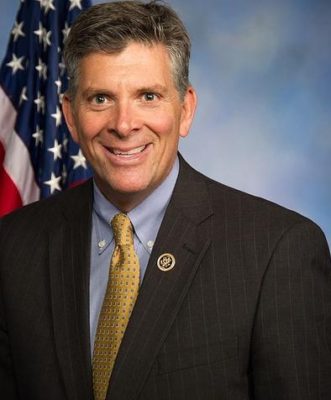The U.S. Recently struck a major trade deal with Japan that is designed to help Illinois’ farmers. 18th District Republican Darin LaHood recently lauded the new trade deal with Japan as helping to shorten the trade deficit gap as well as open up a large market for Illinois corn and soybeans. “I’m very happy for our agricultural community for this Japan trade deal come together. Japan is a very important ally to agriculture. It’s our third largest export market, behind Mexico and Canada. We’ve been talking for the last 2 years about doing a trade agreement with Japan to get them to break down a number of their barriers and tariffs as it relates to agriculture. We’ve finally succeeded in doing that.”
LaHood provided some of the history on the deal dating back to last year: “In 2018, the U.S. exported about $14 billion in food and agriculture products to Japan. Only $5.2 billion of that total was duty free. Under the new agreement negotiated by President [Donald] Trump, now 90% of that total will be duty free. That’s good news for our corn & soybean farmers, beef and livestock producers, and also for our pork producers. In my district, I have one of the largest corn and soybean producing districts, a large ethanol producing district, and the 13th largest pork-producing district – so this is good for our farmers in Central and West Central Illinois. I think it shows the world and our allies that we can negotiate a good trade agreement.”
LaHood says the Japan market of about 130 million people is expanding more and more into U.S. Agricultural and food products. He says that a level playing field for prices will help get Illinois products overseas to even out the U.S. Trade deficit with foreign partners. “For a long time, we let some countries take advantage of us in terms of the way we had structured these trade deals. President Trump has been someone who has come in and changed that dynamic and that narrative in not letting people benefit off the huge market that we have. This Japan deal is one example of that, which will help level playing fields. Once this gets fully implemented, it will expand more farm income and more export opportunities for farmers in Central and West Central Illinois.”
The US exported $14.1 billion in food and ag products to Japan in 2018 and $5.2 billion was already duty free. Under this agreement 90% of the food and agriculture goods imported by Japan from the United States will be either duty free or receive preferential tariff access. Japan will eliminate or reduce tariffs on an additional $7.2 billion of US food and ag products.
According to LaHood, for Illinois goods, this agreement will reduce or eliminate tariffs on beef, pork, grain, sorghum, ethanol, and wheat. This agreement will expand agriculture exports from Illinois to Japan, which will increase farm income and generate more economic activity in rural communities.
President Trump and Japan’s Prime Minister Shinzo Abe signed the agreement on Wednesday. The limited agreement doesn’t require a vote by Congress. Abe and Trump agreed to the trade deal in France in August at a Group of Seven Summit. American farmers had been at a disadvantage in the Japanese market since Trump pulled the U.S. Out of the Trans-Pacific Partnership at the beginning of his presidency according to the Wall Street Journal. The Office of the U.S. Trade Representative said U.S. farm products would now be granted the same advantage in the Japanese market as the countries that signed the TPP.
For its part, the U.S. will reduce or eliminate tariffs on some industrial goods from Japan including certain machine tools, fasteners, steam turbines, bicycles, bike parts and musical instruments, according to the U.S. Trade representative speaking to the Wall Street Journal. The deal also has a digital content sharing provision including a prohibition on imposing tariffs on digital products transmitted electronically, including videos, music, e-books, software and games. The deal ensures barrier-free cross-border data transfers. Japan, for its part, hopes to seek protection from Trump’s proposed automotive tariffs announced last year. According to the Wall Street Journal, this trade deal will provide protections from the car tariffs that Trump had proposed because he felt it was a threat to the national economy.




